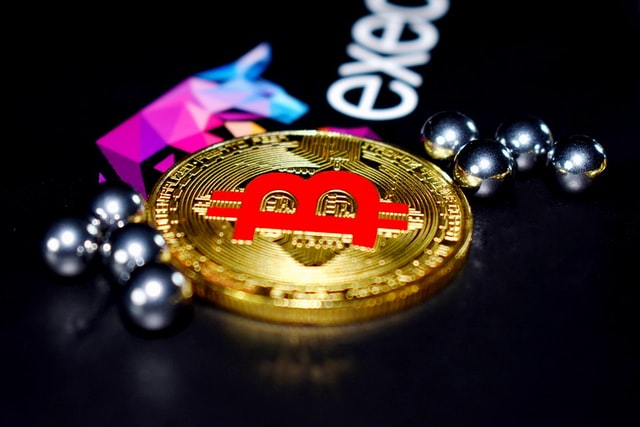WHY BLOCKCHAINS AND DISTRIBUTED SYSTEMS ARE GOOD SOLUTIONS FOR INTERBANK DATA SETTLEMENT
WHY BLOCKCHAINS AND DISTRIBUTED SYSTEMS ARE GOOD SOLUTIONS FOR INTERBANK DATA SETTLEMENT
 |
| https://www.fiverr.com/photoshopmagics |
Blockchains came with a myriad of promises; both big and little. From structural re-engineering of the worldwide economic order around egalitarian values to an easy functionality allowing us the power to buy local goods without the necessity for intermediary financial institutes. In theory, this promise still holds its ground. However, despite the huge expansion (and correction) of the cryptocurrency market over the last two years, blockchain technology has still fully reached its potential in terms of real-world applicability.
One of the good potentials uses of blockchains and offshoot distributed technologies is their viability nearly as good solutions for a spread of knowledge settlement scenarios; none more critical than interbank settlement.
At their most elementary, blockchains are semi-automated clearinghouses that function as per clearly defined algorithms to verify the authenticity of certain transactional claims. which may be a mouthful for those new to the technology, so let’s analyze the ways and means through which blockchains like Bitcoin provide (potentially) a competent protocol for interbank settlement.
The Classic Problem of Interbank Settlement
For anyone who has had the (mis) fortune of transferring funds through international banks, it goes without saying that the method is long and arduous for all stakeholders. The modern-day Society for Worldwide Interbank Financial Telecommunication (SWIFT) protocol hamper on previous transfer times but has not adapted to satisfy modern-day expectations of instant, secure international wiring. the essential reasons for this delay in wiring money revolve around the prevalent procedures for interbank settlement:
End-of-Day Settlement. an honest settlement procedure must run three hundred and sixty-five days / 7 days / 24 hours. However, a majority of the present protocols employed for international transfers usually end in end-of-day processing and transfer of funds after working hours.
Two transaction types. Traditional protocols for interbank settlement process high-value transactions separately from lesser-valued ones. this suggests that two separate procedures, individual and batch-processing, run simultaneously. This invariably results in operational complications and delays.
The Middle-man. Most international settlements aren't just an easy case of bank-to-bank communication via SWIFT. Often, a ‘middle-man’ bank is used as a facilitator between the sending and receiving banks within the absence of any formal banking relations between the 2.
Security. The threat of risk and fraud are always lurking around payments and transfers; the lengthy process of verification can cause significant delays during interbank settlement procedures.
This image has an empty alt attribute; its file name is bjOZxu45Ir7IOu2N5JxeLkQJfSUTy9uJZtf1KsjPxnBycogQY9vBbq0ubsUNhcsKh6Q9D-Umlb2wG8rVCUPJ3HNXE4IASVQzeHfOK9jhzlQZRYfZDO-sMvc9IhrmDncTxrVzkn-k
How Blockchains Fill within the Gap
Blockchains like Bitcoin have shown to be strong potential candidates for viable, legal data (financial) settlement platforms. they'll potentially replace banks as clearinghouses for financial and contractual settlements of all kinds. Here are some inherent benefits of technology:
Speed. Settlements on the blockchain are fairly quick. one bitcoin transaction takes as little as 7 minutes before it's formally validated on the blockchain. This ensures quick and convenient settlement.
Security. Blockchain transactions are secure; being distributed systems, they prevent government intervention and evil by banking stakeholders. Impersonation, too, is tough thanks to the complex cryptography that protects each transaction. They do, however, accompany their own set of risks.
Cheaper. The median bitcoin transaction fee is .79 as of February 2018. this is often exponentially but the fees for a SWIFT transaction, although may very well be higher for national transactions (see RTGS below).
Decentralized. this is often the large one: blockchains get obviate formal clearinghouses like multinational banks and therefore the SWIFT network and place your transactional data on a distributed ledger. SWIFT transactions, in contrast, are subject to rigorous financial oversight and changing fiscal policies.
The Need for Decentralised Real-Time Gross Settlement Systems
Real-Time Gross Settlement Systems (RTGS) are already prevalent at the national level in most countries. These enable low-cost (often free), instant payment, and settlement across nationally operated banks. However, changing exchange rates and therefore the sheer breadth of banking stakeholders means such a system remains very difficult to work at the international level.
Another issue is that of security, which justifies the prospect of decentralized data settlement at the national level despite the presence of RTGS. Centralized RTGS are often taken d



Comments
Post a Comment